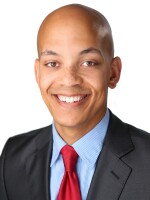MARY LOUISE KELLY, HOST:
President Trump today doubled down on his misleading claim that his predecessors didn't call the families of soldiers who were killed in action. NPR's Geoff Bennett has details from the White House.
GEOFF BENNETT, BYLINE: President Trump's latest comments came during an interview this morning on FOX News Radio. Trump suggested that reporters ask his chief of staff, retired General John Kelly, whether President Obama called him after his son died in Afghanistan.
(SOUNDBITE OF ARCHIVED RECORDING)
PRESIDENT DONALD TRUMP: I mean, you could ask General Kelly. Did he get a call from Obama? You could ask other people. I don't know what Obama's policy was. I write letters, and I also call.
BENNETT: Kelly's son, Marine Second Lieutenant Robert Kelly, was killed while serving in Afghanistan in 2010. He was 29 years old. The president invoked his death to justify comments he made a day earlier. That's when a reporter asked Trump why he hadn't for nearly two weeks publicly addressed the ambush and killing of four U.S. servicemen in Niger.
(SOUNDBITE OF ARCHIVED RECORDING)
TRUMP: The traditional way - if you look at President Obama and other presidents, most of them didn't make calls. A lot of them didn't make calls.
BENNETT: Trump conceded that he didn't know the policies of his predecessors. Today, a Trump White House official told NPR that President Obama did not call Kelly after his son was killed. But Kelly and his wife did attend a Gold Star breakfast in May 2011 that President Obama hosted. According to a source, Kelly and his wife sat at the first lady's table. Geoff Bennett, NPR News, the White House. Transcript provided by NPR, Copyright NPR.


